28 hospitals and health facilities will benefit. Installations will be concluded by June 2024
Solar Installation to Ease Service Delivery in South Sudan’s Health Sector
November 30, 2023
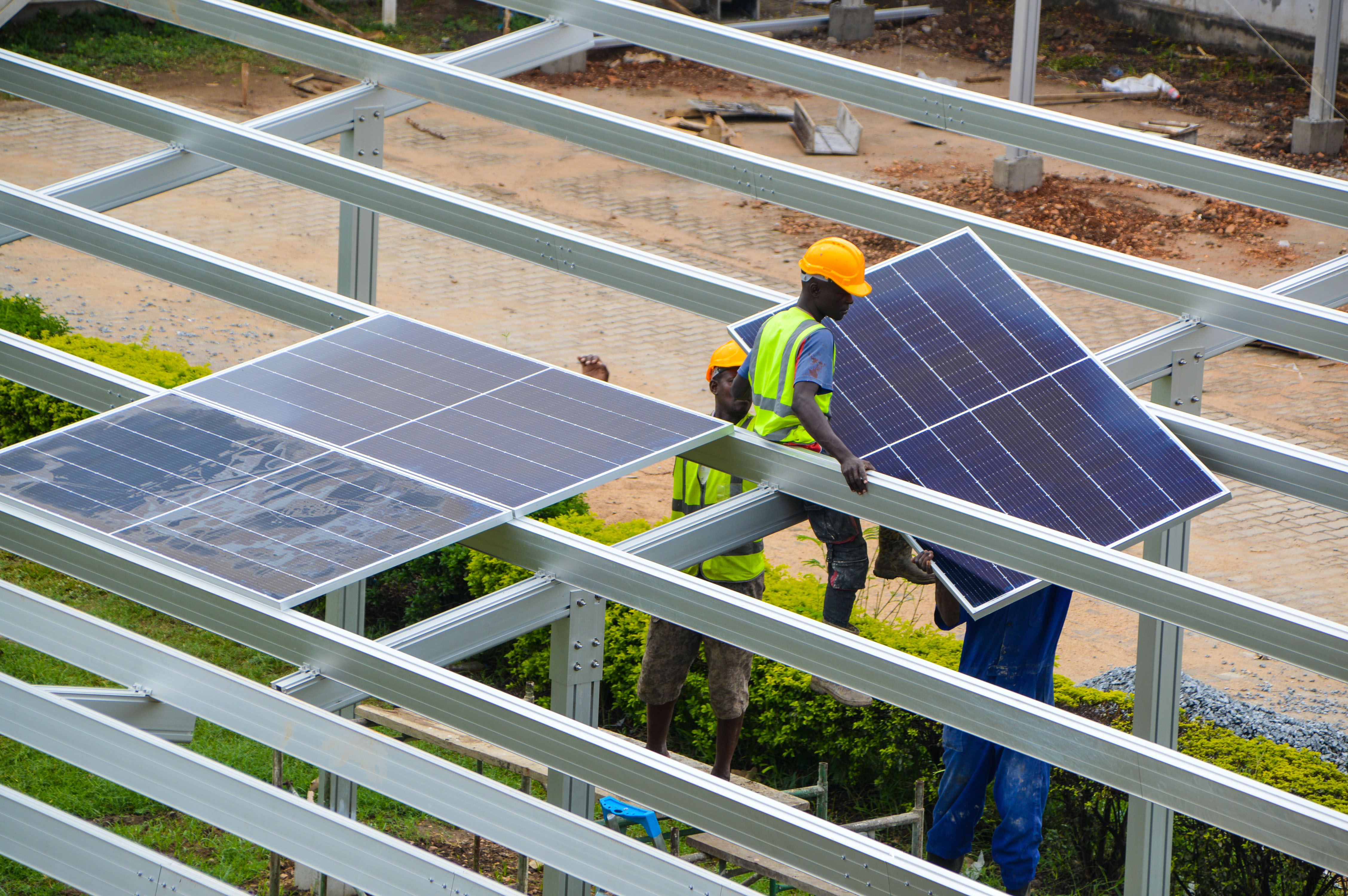
Solar installation at the National Public Health Laboratory, Juba
In a bid to unlock health service delivery challenges fueled by power shortages, UNDP, in conjunction with the Government through the Ministry of Health, with funding from the Global Fund, is installing solar power in 28 hospitals and health facilities across the country. Of these, new solar Photovoltaic (PV) systems are being installed in 19 health facilities; while for nine health facilities, battery replacements are being planned because they have already existing solar PV systems.
By November 2023, installation had been completed in six hospitals and health facilities and was expected to be completed by June 2024 in all the 28 facilities. The six facilities where the installation has been completed are; Juba Teaching Hospital, Al Sabah Children Hospital, National Public Health Laboratory, National Medical Stores, Wau Teaching Hospital and Kator Primary Healthcare Center (PHCC) – Juba.
The installation will yield multiple benefits including ensuring that medical operations, procedures and laboratory tests are undertaken, improving safety and storage of medical supplies and reagents, while enabling hospitals and health facilities to operate both day and night.
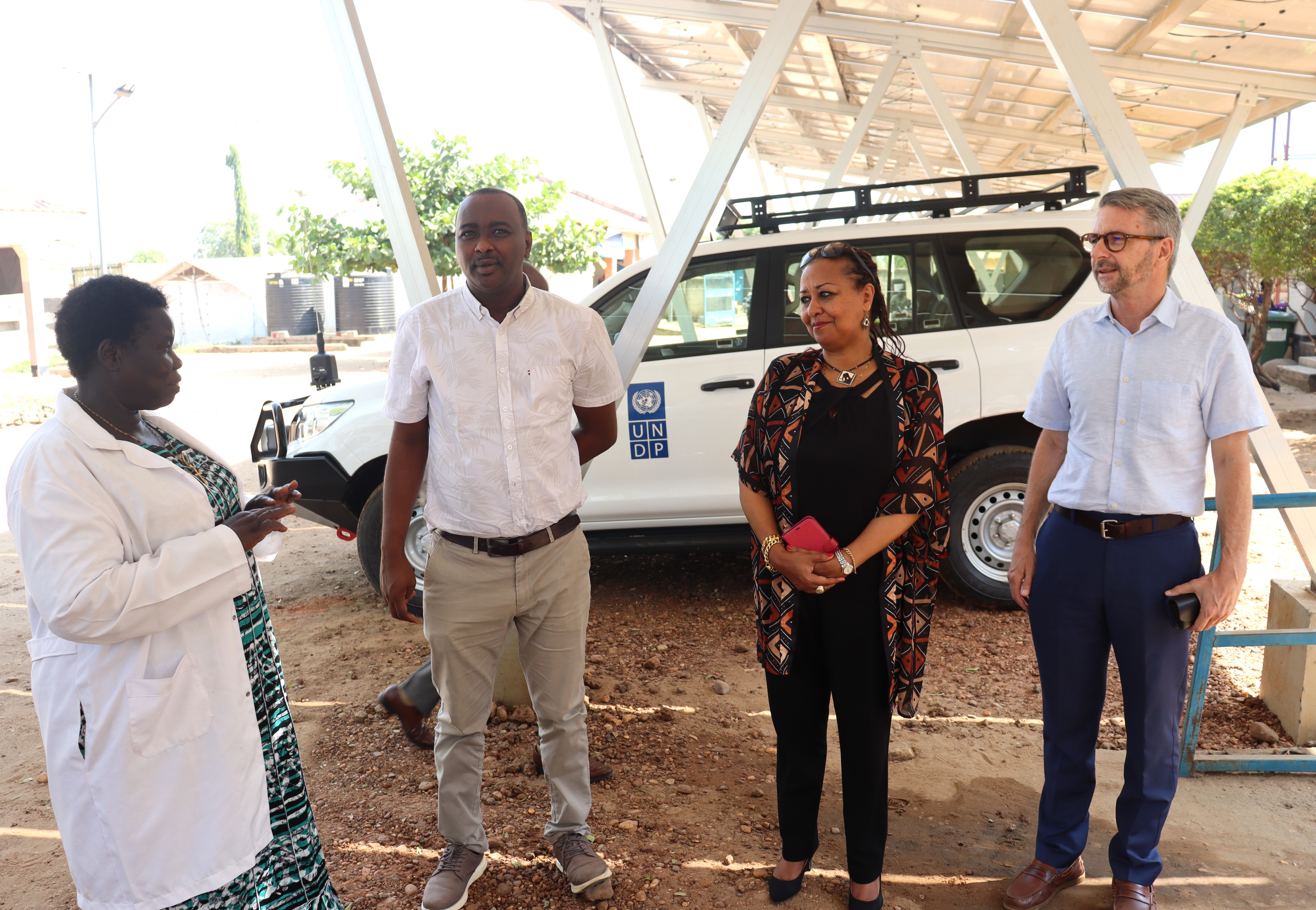
Ms. Anna Pita (L), the In-charge, Kator Primary Healthcare Center with a UNDP team led by the Deputy Resident Representative – Operations, Mrs. Debab Asrat Ynessu during a field visit to witness the solar installation.
This is already being arranged at Kator PHCC which serves a catchment area of 12,287 people. Ms. Anna Pita, the In-charge, Kator PHCC, says that following the installation, they are finalizing arrangements to start operating seven days a week, both day and night.
“We have been operating Monday to Friday from 8:30 a.m. to 4 p.m. because of lack of power. Only selected critical staff from key units such as maternity and the TB lab would work on Saturday and Sunday, and sometimes at night. With solar, we are going to start operating 24/7,” she said.
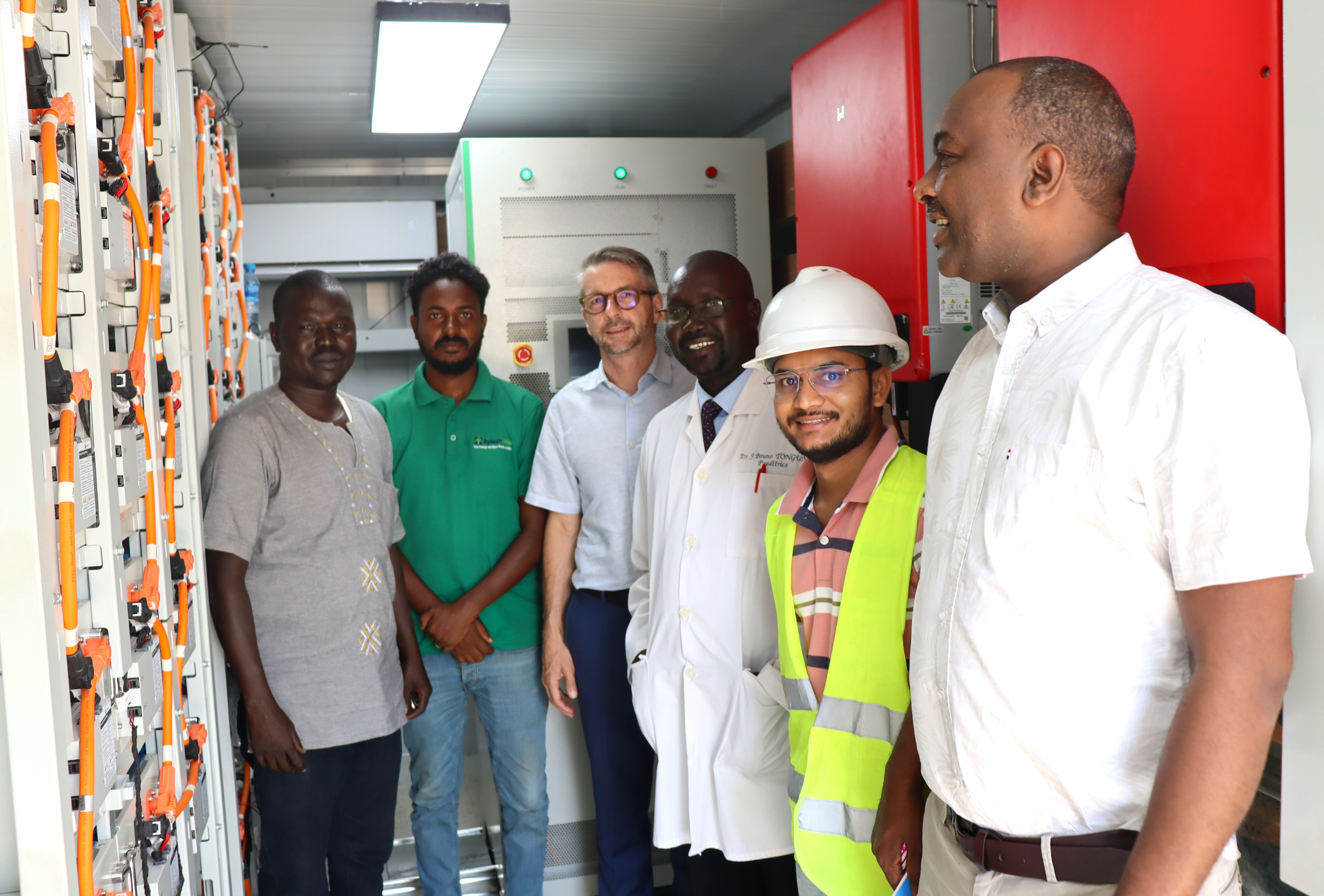
The Executive Director Al Saba Children’s Hospital, Juba, Dr. Justin Bruno Tongun (3rd from right), Mr. Russell Armstrong (3rd from left) UNDP – Global Fund Programme Coordination Advisor accompanied by engineers in the solar technical room at the hospital.
Similarly, at Al Saba Children’s Hospital, Juba, the Executive Director Dr. Justin Bruno Tongun describes power supply at the hospital as a matter of life and death,
“Power is the biggest problem that we have. It’s a life and death issue for us. If power goes off right now, you will see people run here to my office. You will see women wailing over the death of their children currently on oxygen. So, we really thank UNDP and Global Fund for the support,” said Dr. Justin Bruno Tongun.
South Sudan is one of the world’s least electrified countries, with an acute shortage of power supply which affects provision of health services to the country’s estimated population of 12 million.
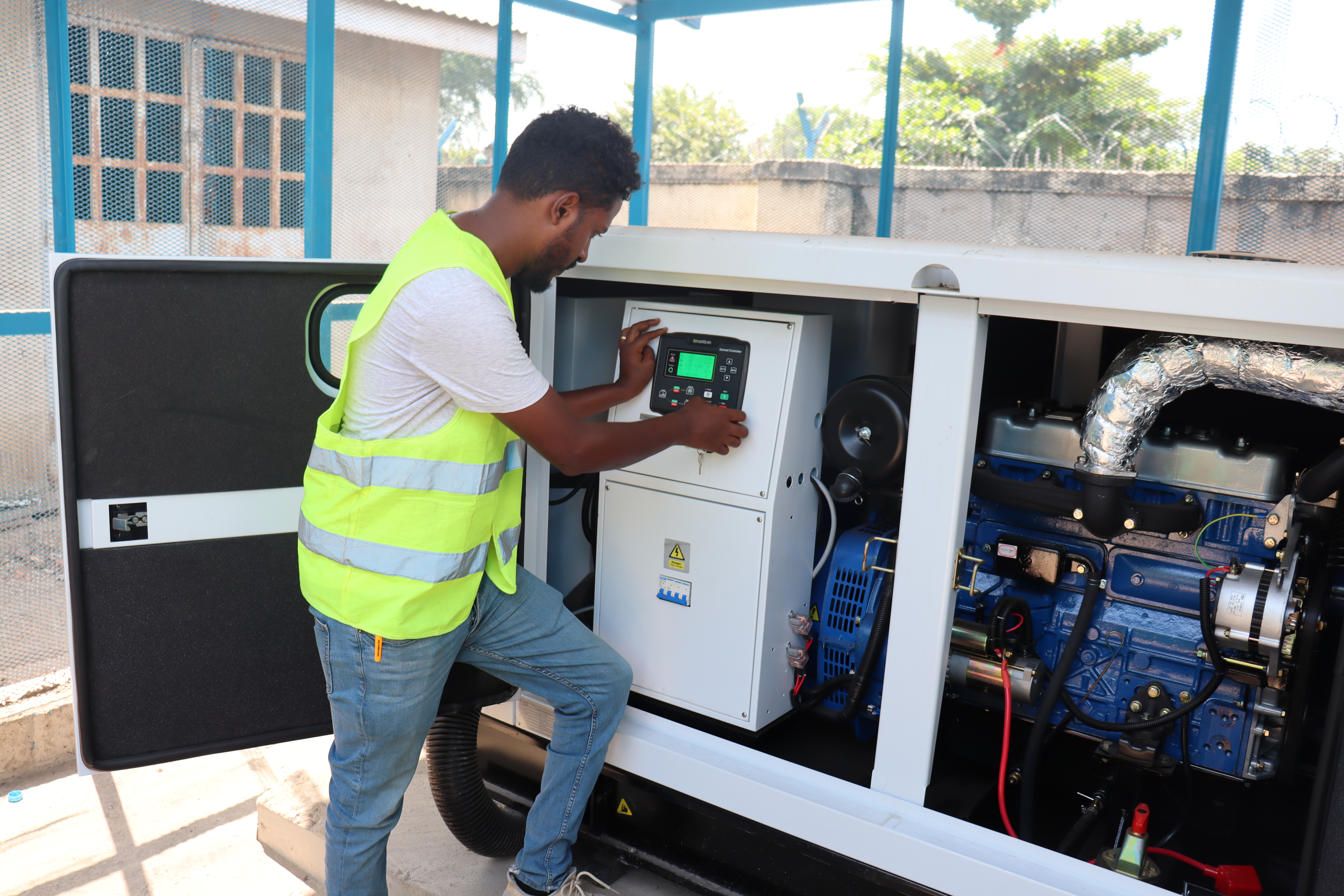
A technician fixes a generator at Kator Primary Healthcare Center
As a result, some able hospitals and health facilities have fuel-run generators. However, most of these generators run only 12 or fewer hours a day due to high maintenance costs. Yet South Sudan has huge potential for solar energy given its warm weather with temperature averages normally above 25°C, and highs exceeding 35°C, particularly during the dry season.
With solar, we no longer have to use torches to deliver women - In-charge, Kator PHCC
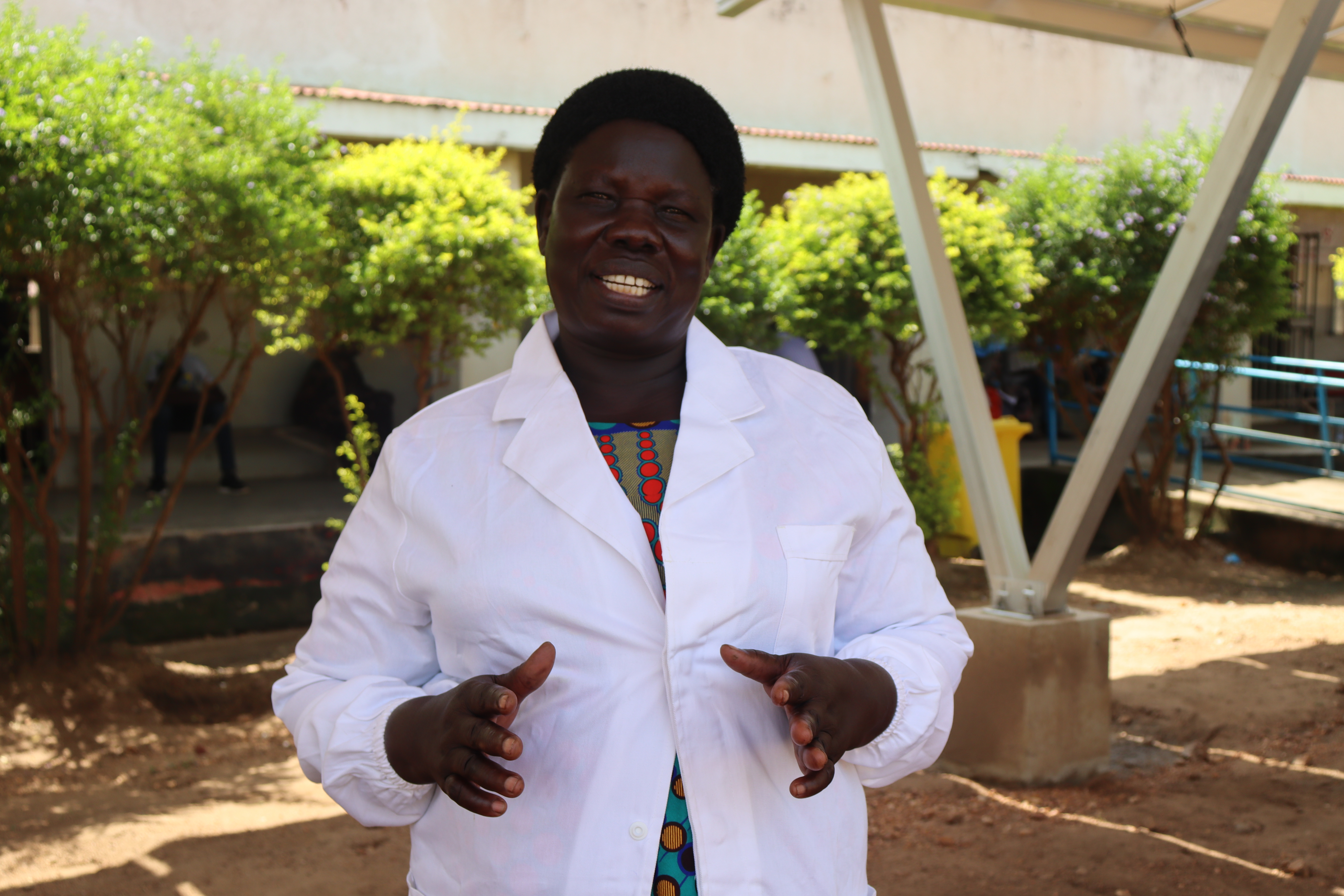
Ms. Anna Pita, the In-charge, Kator Primary Healthcare Center
We have been operating Monday to Friday from 8:30 a.m. to 4 p.m. because of lack of power. Only selected critical staff from key units like maternity and the TB lab would work on Saturday and Sunday, and sometimes at night. With solar, we are going to start operating 24/7.
Delivering health services without regular power supply has been very challenging especially for emergency procedures like child birth which can not wait. It has been very very difficult to work in the maternity ward at night. Doctors and mid-wives would use torches and sometimes the torches of phones to deliver women!
This is not the ideal, but we would do it to save lives. If a woman came to labour and there is no power, what would you do? You would use your mind to rescue the situation and save the life of the mother and the child. But now we no longer have to use torches.
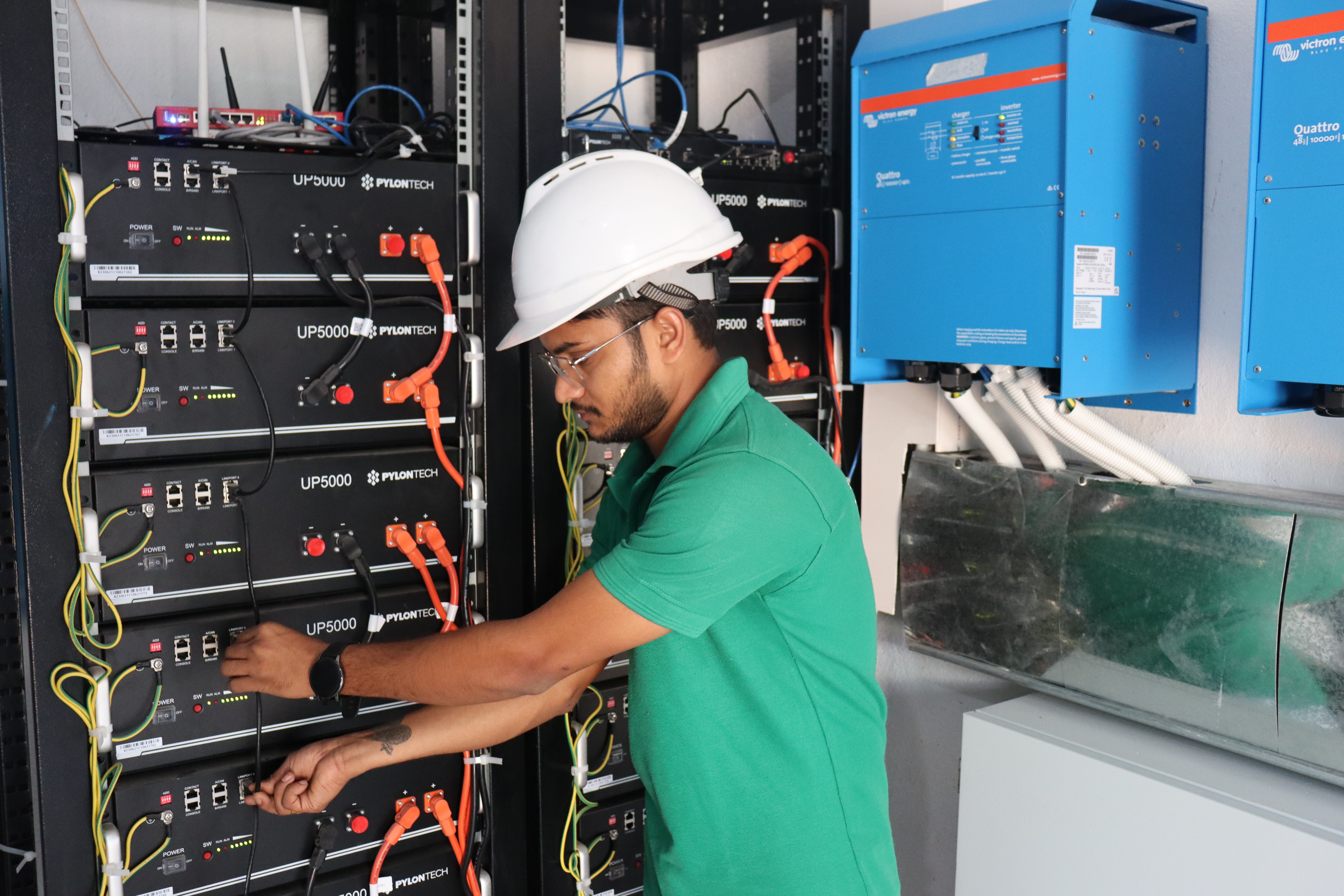
An Engineer working in a technical room at Kator PHCC
As for the lab tests, we wouldn’t send people away simply because we weren’t able to do tests because of lack of power. In health, we have many ways of solving a problem. If there was no power in the lab, we would do clinical observation and treat people based on signs and symptoms and how the patient felt. But this has its own limitations. For instance, you cannot detect diseases such as typhoid with signs and symptoms. Fever is not a disease; it’s a sign of something which can be confirmed under the microscope. With solar, we are also now able to safely store medicines and drugs, and we have functional air conditioners (Acs).
Solar has also improved the overall security at Kator, and we hope it is going to end a history of theft and breakins which have led to loss and destruction of government property and equipment. Even this room – her office where the interview was held – thieves broke into it and stole computers, modems and water taps. Now we have functional security lights which will deter thieves from coming. The guards are now able to see from far because of the lights.
The 28 solar installation centers
1 National Public Health Laboratory, Juba
2 National Medical Stores, Juba
3 Wau Teaching Hospital
4 Kator Primary Health Care Center,
5 Al Saba Children’s Hospital, Juba
6 Torit State Hospital
7 Kuajok Hospital
8 Yambio State Hospital
9 Rumbek State Hospital
10 Juba Teaching Hospital,
11 Munuki Primary Health Care Center, Juba
12 Gurei Primary Health Care Center
13 Juba Prison Primary Health Care Center
14 Imehejek Primary Health Care Center
15 Torit State Hospital
16 Aweil State Hospital
17 Nzara Hospital
18 Rumbek State Hospital
19 Maban County Hospital
20 Bentiu Hospital
21 Aweil State Hospital
22 Yei State Hospital
23 Juba Military Hospital
24 Kapoeta Civil Hospital
25 Nimule Hospital
26 Ministry of Health, Juba
27 Cuiebet Hospital, Rumbek
28 Gordhim Hospital, Aweilbo

 Locations
Locations